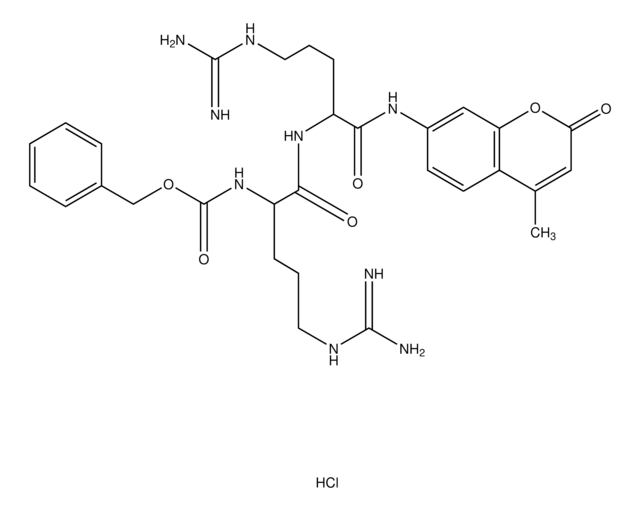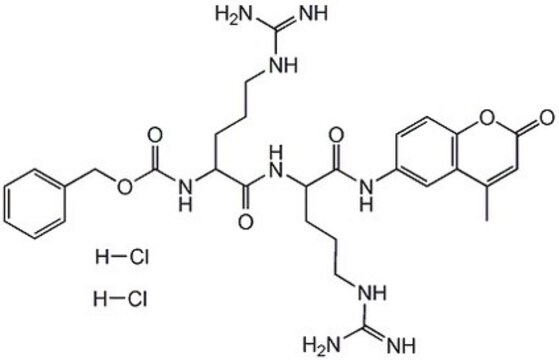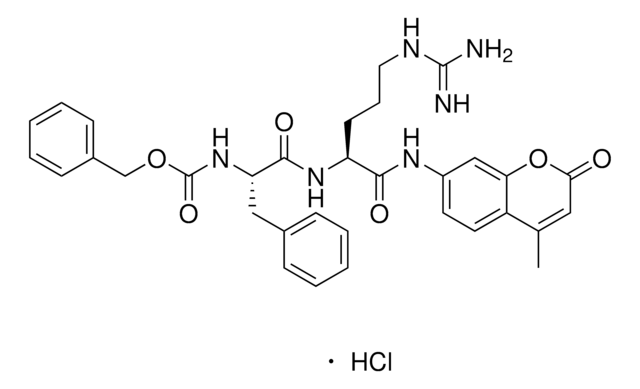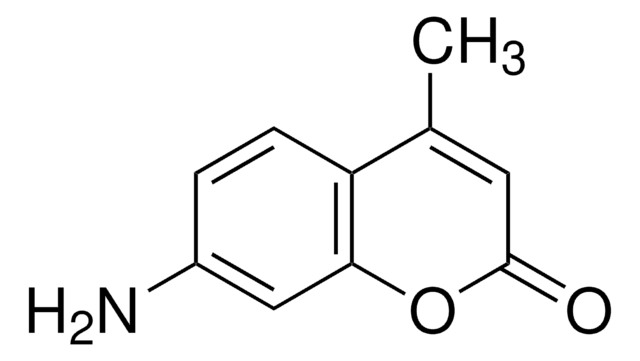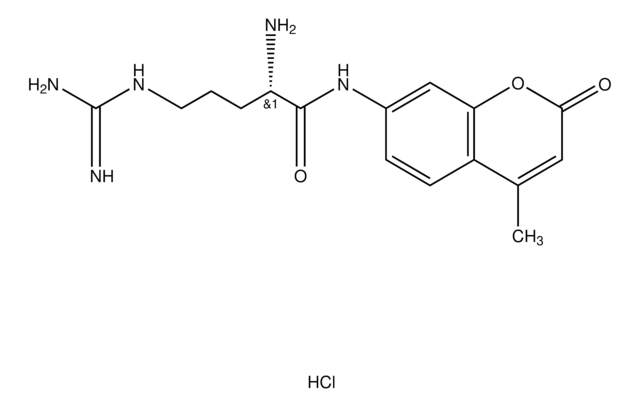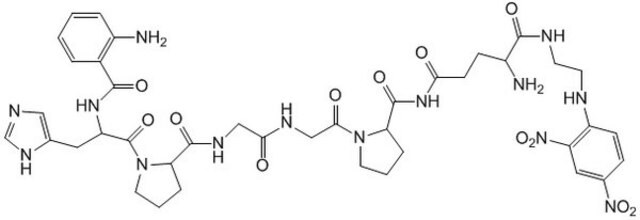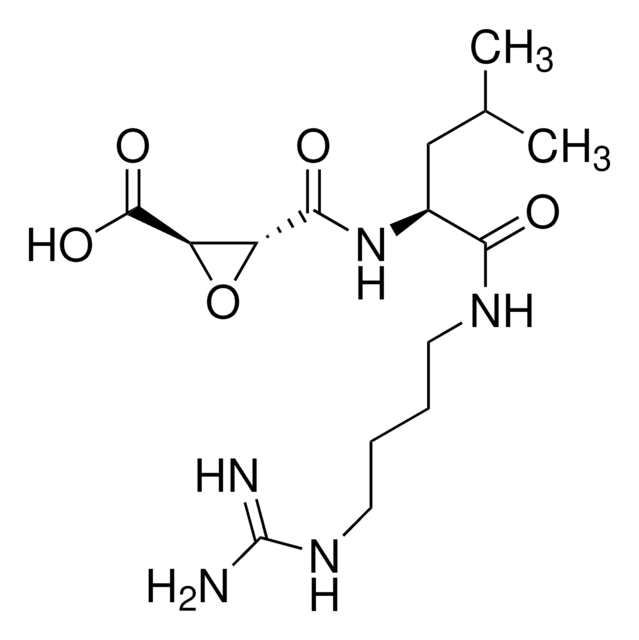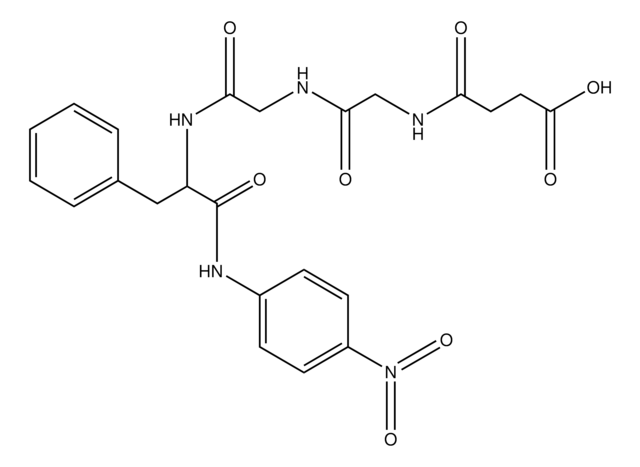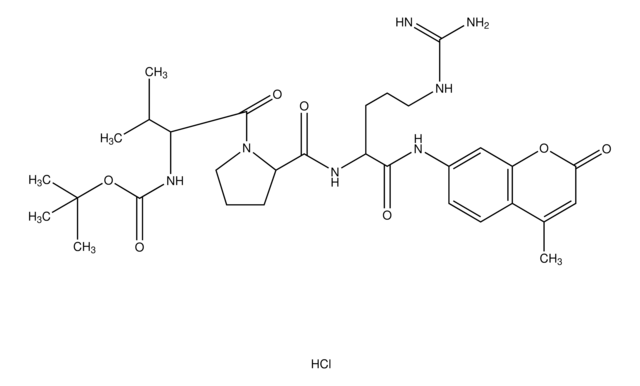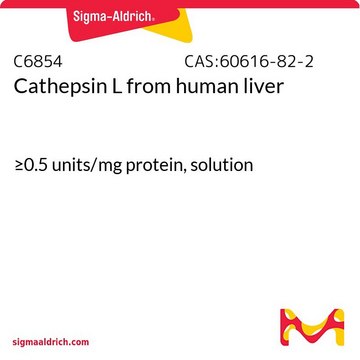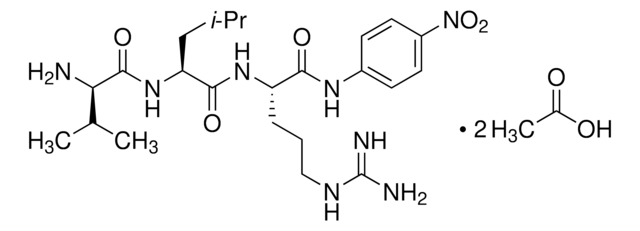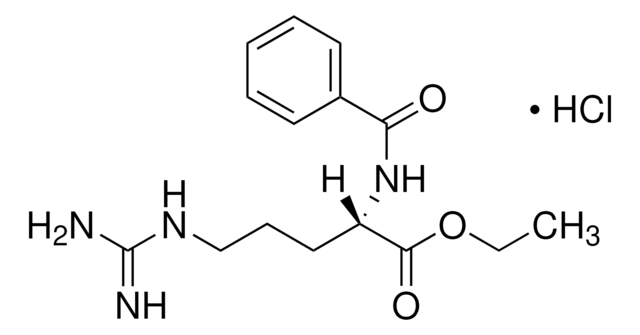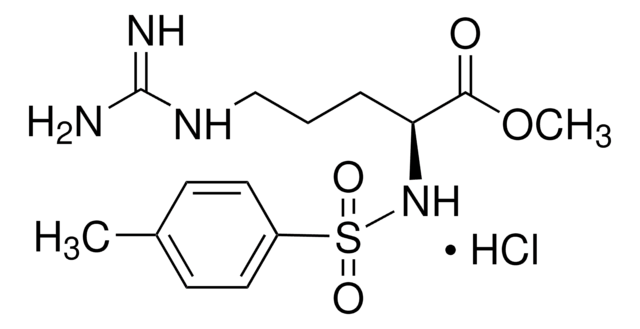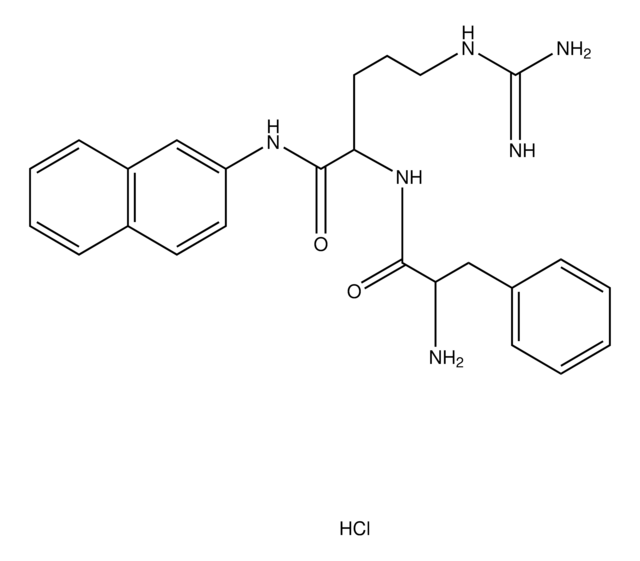C9521
Z-Phe-Arg 7-amido-4-methylcoumarin hydrochloride
kallikrein substrate, ≥95% (HPLC), powder
Synonym(s):
Z-Phe-Arg-AMC
About This Item
Recommended Products
Product Name
Z-Phe-Arg 7-amido-4-methylcoumarin hydrochloride, kallikrein substrate
Quality Level
Assay
≥95% (HPLC)
form
powder
concentration
≥95%
solubility
methanol: 20 mg/mL, clear, colorless
storage temp.
−20°C
SMILES string
O=C(N[C@@H](CC1=CC=CC=C1)C(N[C@@H](CCCNC(N)=N)C(NC2=CC=C(C(C)=CC(O3)=O)C3=C2)=O)=O)OCC4=CC=CC=C4.[Cl]
InChI
1S/C33H36N6O6/c1-21-17-29(40)45-28-19-24(14-15-25(21)28)37-30(41)26(13-8-16-36-32(34)35)38-31(42)27(18-22-9-4-2-5-10-22)39-33(43)44-20-23-11-6-3-7-12-23/h2-7,9-12,14-15,17,19,26-27H,8,13,16,18,20H2,1H3,(H,37,41)(H,38,42)(H,39,43)(H4,34,35,36)
InChI key
ZZGDDBWFXDMARY-UHFFFAOYSA-N
General description
Application
- as a fluorogenic substrate in actinidin inhibition assay
- as a kallikrein substrate
- as a trypsin substrate for fluorometric assay
- as a cathepsin-L substrate
Biochem/physiol Actions
Substrates
Storage Class Code
11 - Combustible Solids
WGK
WGK 3
Flash Point(F)
Not applicable
Flash Point(C)
Not applicable
Personal Protective Equipment
Regulatory Listings
Regulatory Listings are mainly provided for chemical products. Only limited information can be provided here for non-chemical products. No entry means none of the components are listed. It is the user’s obligation to ensure the safe and legal use of the product.
JAN Code
C9521-10MG:
C9521-VAR:
C9521-100MG:
C9521-25MG:
C9521-BULK:
C9521-5MG:
Choose from one of the most recent versions:
Already Own This Product?
Find documentation for the products that you have recently purchased in the Document Library.
Customers Also Viewed
Our team of scientists has experience in all areas of research including Life Science, Material Science, Chemical Synthesis, Chromatography, Analytical and many others.
Contact Technical Service